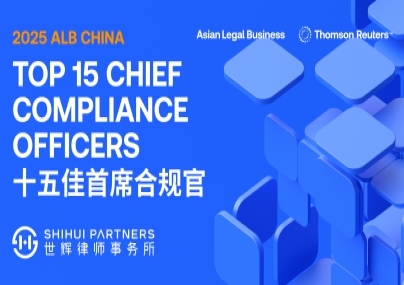
一周前的美东时间3月10日,美国排名第十八位、因长期为初创企业及风险投资公司提供金融服务而著称的美国硅谷银行宣布破产。硅谷银行因流动性危机在48小时内“闪崩”令公众瞠目结舌,作为其忠实客户,创投圈也深受冲击,其影响也波及至亚太地区,甚至中国。
亚太地区科技企业及基金受到了哪些影响?
在3月13日举行的一场网络研讨会中,安理国际律师事务所(以下简称A&O)驻香港的合伙人James Ford指出,除了为初创型科技企业提供服务,硅谷银行在基金圈也占有不小市场份额,尤其服务于相当数量的私募及风投基金。
在亚洲,“确实从3月10日的周末开始,很多在硅谷银行有存款的客户开始打来咨询电话”,Ford说。
高伟绅律师事务所香港基金合伙人邢丽咏也在这一时段接到不少问询,不过她指出,由于美国监管机构反应迅速,硅谷银行业持有不少优质财产,这次“爆雷”事件对亚太地区的影响比较有限。“从3月9日起,我们就向亚太基金客户一刻不停地汇报事情最新进展,并和美国熟悉银行监管、基金管理的同事一起,支持在硅谷银行有存款的亚洲基金GP。”
聚焦到中国,据路透社报道,硅谷银行进入中国市场已超20年,并在当地经营有一家合资机构——浦发硅谷银行。网站显示,其在北京、上海、深圳都开设有分支机构。由于在90年代末就进入中国,“硅谷银行在中国年轻初创企业选择外国银行时占了主导性优势”。
齐华英是A&O驻上海的合伙人,在同一场网络研讨会上她指出,从3月10日起她也收到许多客户问询,目前主要是“保持关切,并及时提供第一手消息”。同时她坦言,由于硅谷银行对中国的科技圈十分重要,短期内可能对这些公司的流动性构成一定的不稳定困扰。
大家关注于哪些问题?律师有什么建议?
除了关心美国监管机构的救济措施,齐华英指出,中国客户的讨论还围绕两点展开:其一,一旦有可能,是否应该立刻将资产转到其他银行;其二,基金客户还很关心是否需要从此开设两个银行账户。James Ford也指出,事实上已经有一些银行在做出相应安排,尽量流畅地接收这些可能转出的资金。
不过一位中国风投基金的高管告诉路透社,寻找替代银行并不容易,“对风投友好的银行为数不多”。
此外,齐华英还观察到基金圈内的通畅沟通。“基金和LP、投资组合公司(portfolio company)和投资人都在积极沟通善后事项,我认为当下保持透明沟通非常重要。”
高伟绅的邢丽咏对此也表示认可。“我们看到亚洲基金GP面对这次风险都有很积极的态度,这有赖于他们业已建立的、回应危机事件的稳健系统。GP和投资组合公司一方面在评估风险,另一方面在现金流方面做出应对,当前要务是守护好资产与资本,正是由于信息的透明通畅,大家才对制度有信心、有信任。”
硅谷银行事件有哪些长期提示?
虽然目前对硅谷银行事件风险波及范围做出判断为时尚早,但律师们已然从其中看到了一些值得客户及自身给予更多思考的话题。
第一个警示在于投资治理标准的良莠不齐。A&O驻悉尼的合伙人Jason Denisenko在研讨会上坦言行业内投资者群体对于投资治理标准不统一。“投资人对这样的事情做好准备了吗?他们近期有没有检视过风险管理计划?有没有对投资治理安排做过压力测试?”亚太科技领域的参与者应及时反思。
“我觉得这是个挺好的机会,让大家思考一下治理和责任的问题。类似情况下,是否能够做些什么来把风险降到最低?什么才可谓对投资的恰当管理?”Denisenko说。
第二,这一事件可能也会增强投资人的风险意识。James Ford指出:“投资于科技公司时,投资人可能要更强调运营及交易方风险问题,以及当交易方出现问题时,对被投公司韧性的评估。”
第三点提示则针对于律师及其服务本身。如邢丽咏所说,高伟绅也是第一批组织美、英、欧、亚太各地律师对此次事件展开专题研讨的律所,“能够快速组建跨地区、跨专业团队来应对这样的突发事件,客户真的会感觉眼前一亮”。
As SVB risk spreading to Asia, experts say transparency and confidence are still No.1 rule
A week ago, on March 10 EST, Silicon Valley Bank, which ranked eighteenth in the US and was known for providing financial services to start-ups and venture capital companies for more than three decades, declared insolvency. SVB's "flash collapse" within 48 hours due to its liquidity crisis stunned the public. As its loyal customers, the tech and funds communities were also deeply impacted, and its risk also spread to APAC, and even China.
How have Asian start-ups and funds in APAC been affected?
In a webinar held on March 13, James Ford, Hong Kong-based partner of Allen & Overy (“A&O”), pointed out that in addition to its role as the bank to the tech community, SVB was also an early mover and had a significant market share as the bank to the funds community, particularly for private equity and venture capital.
“We did have a lot of calls over the weekend, trying to think through issues for funds with cash on deposit with SVB,” says Ford.
Liyong Xing, a Hong Kong fund partner of Clifford Chance, also received many inquiries during this period. However, she points out that the impact in Asia is relatively limited given the swift response from the US regulators and the fact that SVB holds quality assets. “Since Thursday (March 9), we've been working very closely with our funds clients in Asia to ensure they are updated on the latest developments. We've leveraged the expertise of our US colleagues, from banking regulatory to fund management, to support many Asian GPs who have exposure,” says Xing.
Focus on China. According to Reuters, SVB has entered the China market for more than 20 years and operates a local joint venture, SPD Silicon Valley Bank. According to its website, the joint venture has branches in Beijing, Shanghai, and Shenzhen. Since entering the market in the late 1990s, " it was the dominant foreign bank of choice for young companies in China."
Daisy Qi, a partner of A&O in Shanghai, shared in the same webinar that she had also received many client inquiries since March 10, and at present, they mainly "keep a close eye on this and keep everyone posted." But Qi admitted that as SVB was very important for the tech community in China, “I think the current uncertainty may reduce a little bit of liquidity.”
How has everyone been responding and how could lawyers help?
In addition to focusing on the relief measures of the US regulators, Qi pointed out that the discussions among Chinese clients also revolved around two points: first, whether they should immediately transfer their assets to other banks if possible; and second, whether having two bank arrangements made sense in the future. James Ford also shared that in fact some of SVB’s former competitors were already doing their best to try and streamline processes to receive the possible transferred funds as smoothly as possible.
However, as one executive at a Chinese venture capital fund with deposits at SVB told Reuters, it was no easy task. "Not a lot of banks are friendly to venture capital."
In addition, Qi also observed smooth communication within the funds community. "Funds and their LPs, portfolio companies, and their investors were all actively communicating regarding how things are being handled. I think currently transparency is very important in the community."
Xing of Clifford Chance concurs. “What we've observed is a positive response from Asian GPs in managing their exposure. They have robust systems for responding to incidents like these. GPs and their portfolio companies are assessing their exposure and actively managing cash flow. The priority is on finding solutions to safeguard assets and capital, and we've really seen a high level of transparency that is shoring up confidence and trust in the system,” says Xing.
What are the long-term hints?
Although it is too early to make a judgment on the scope of the SVB incident’s risk, lawyers have already spotted some topics worthy of more consideration by clients and themselves.
The first caveat lies in the varying standards of investment governance. Jason Denisenko, a partner of A&O in Sydney, admitted at the webinar that it highlighted for him the different standards that are being applied throughout the industry in relation to investment governance from the investor group. “Whether they're ready for these sorts of events? Whether they've dusted off their risk management plans recently, and stress-tested some of their arrangements?”
“I think it's a great opportunity to reflect on risk management governance and accountability, and what you could have done or what else could have been done in these circumstances to minimize your exposure and ensure your investments were appropriately managed,” says Denisenko.
Second, this incident may also enhance the risk awareness of fund managers. As James Ford pointed out, "I think managers are rethinking on operational and counterparty risks, and also the underlying company's resilience in the event of counterparty failure."
The third tip is aimed at lawyers and legal services themselves. As Xing says, Clifford Chance was one of the first firms to host a global insights webinar, bringing together experts from the US, the UK, Europe and Asia Pacific. “Clients have really benefited from our ability to bring together a multi-disciplinary team across jurisdictions to respond to global events like these quickly.”


